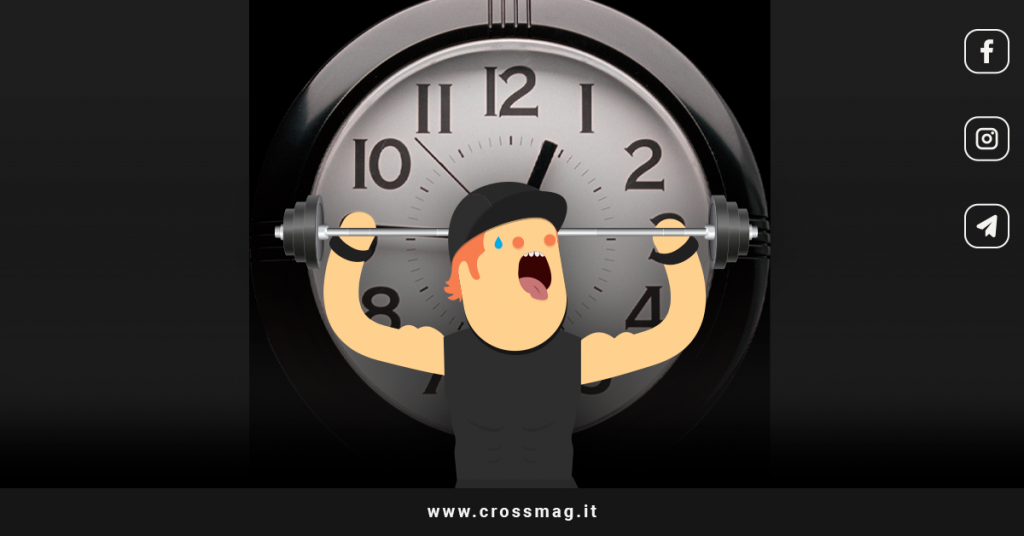When you approach the world of fitness as a beginner, one of the first questions you ask yourself is this: what is the right duration of a workout?
The answer to this question is not unique; first of all you need to evaluate what your goals are, the availability of time for each session, the initial condition, the type of training chosen and many other variables.
In this article we will give you some tips on how to organize the better duration of a workout, based on your goals and lifestyle.
Index
Duration of training: what does it mean?
When a person says they have been exercising for more than two hours, it does not necessarily mean that they have actually been exercising all that time. There are many factors that need to be taken into consideration:
- duration of warm up, that is, the heating (never skip it!)
- rest periods between exercises and also between sets
- stretching
- any bathroom breaks
- any breaks, snacks, etc.
Except in special cases, an actual two-hour workout without breaks is really too much, so if you don't have that much time, don't worry.
You can certainly manage to get a satisfying workout anyway.
Duration of training and hormones: testosterone and cortisol
The idea of doing short but intense workouts, has been around for many years now (the famous HIIT, eg); some believe that a workout longer than 45 minutes can lead to a decrease in testosterone levels (muscle building hormone) and an increase in cortisol levels (stress hormone), causing a catabolic state (muscle loss).
However, research has shown that 90-minute workouts would lead to an increase in testosterone for up to two hours after the workout; there is no evidence that cortisol can actually ruin progress.
Duration of training and lifestyle
As anticipated, there is no correct and optimal duration of a workout; there is a realistic and sustainable training duration that works differently for each person, based on his needs, goals and lifestyle.
For example, if you train during the lunch break during the week, you will devote less time to this workout than a weekend workout, unrelated to work commitments.
Training must be a priority, as are work, leisure, relaxation, so it must not have a negative impact on the responsibilities of your life.
How long should rest periods last?
Il rest time between one set and another and between each exercise is the variable that most affects the actual duration of a workout.
Also for the rest, there is no univocal and fair duration for everyone; it has to last until you feel ready for the next set.
Studies have shown that short periods of rest (1-2 minutes) would produce less muscle growth than longer periods (3-5 min), which, in addition, would help recover the central nervous system, promoting more stimulating repetitions.
In conclusion
The duration of the workout includes many factors; you won't lose muscle mass if your workouts last 45 minutes or 1h30.
Remember to:
- adjust your workouts according to your schedule and lifestyle
- use different intensification techniques
- rest between sets until you feel ready.
How much time do you spend on your workout? Let us know in the comments!
Anyway, we have activated a lot of discounts on our Telegram Fitness & Sport channel: from 30 to 70% on all sports categories! Find it all here

